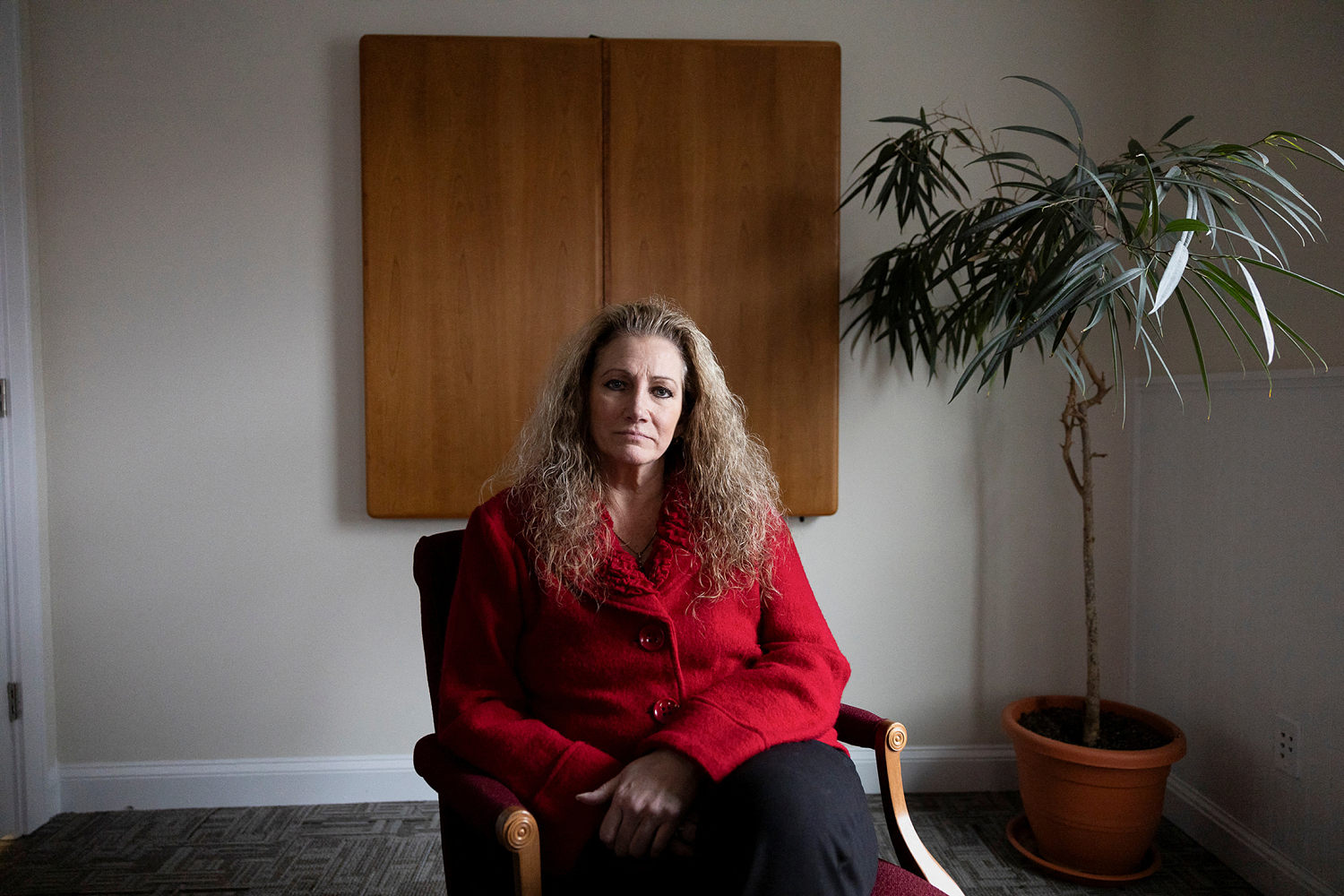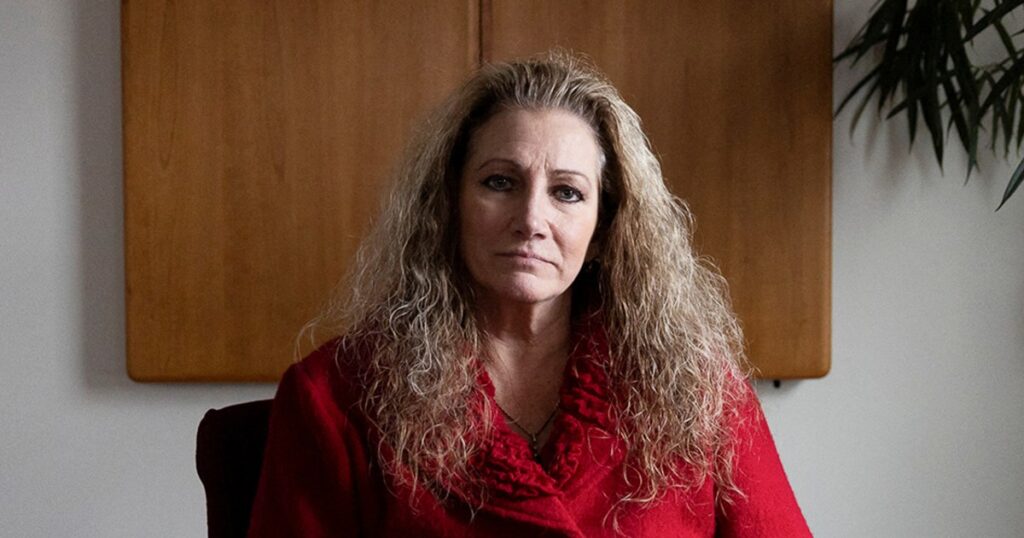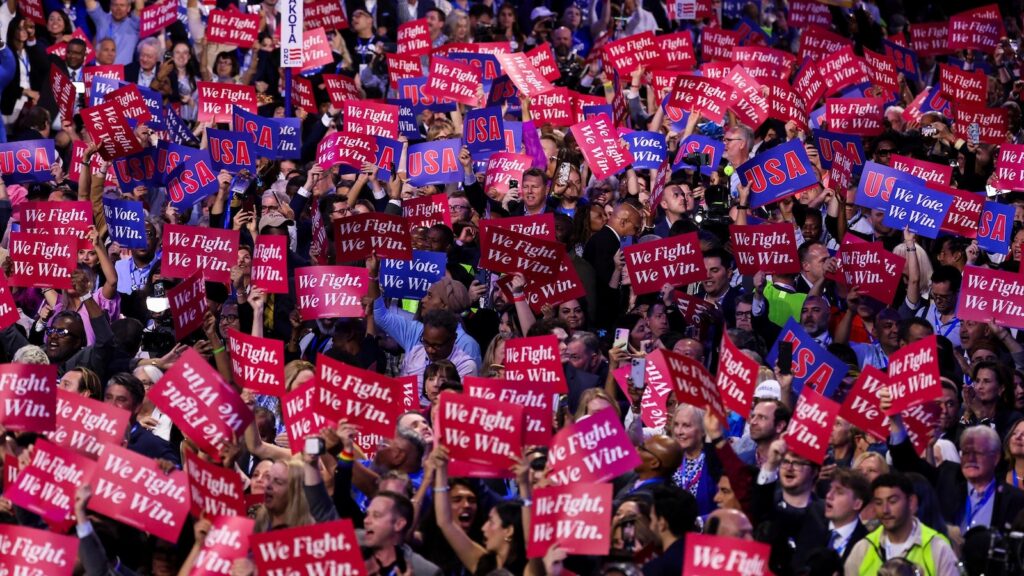
UPDATE (Feb. 26, 2024, 12:28 p.m. ET): Following Wednesday’s hearing, NBC News reported that the Supreme Court “appeared likely to allow a woman to pursue a claim that she was discriminated at work because she is straight.”
While the White House fights against DEI initiatives, Trump adviser Stephen Miller’s legal group is backing the Supreme Court appeal of a straight woman who wants the justices to help her press a workplace discrimination claim after she said she was passed over for promotion and demoted in favor of a lesbian and a gay man.
Ahead of Wednesday’s oral arguments at the high court, here’s the background of the case, the legal issue, and who’s supporting each side in a dispute that isn’t a precisely right-left political split.
Marlean Ames brought the discrimination claim against her employer, the Ohio Department of Youth Services. But as a member of a “majority” group, she had a greater burden to show what courts call “background circumstances” that would “support the suspicion that the defendant is that unusual employer who discriminates against the majority.”
A federal appeals court rejected Ames’ claim, but with a well-regarded conservative judge writing a concurring opinion questioning that “background circumstances” rule, which several appeals courts around the country have applied.
The legal question at the Supreme Court is whether majority-group plaintiffs need to show such circumstances. As NBC News reported:
A ruling in her favor by the Supreme Court, which has a 6-3 conservative majority, could make it easier for non-minorities, including white people and heterosexuals, to pursue claims of illegal bias — often called “reverse” discrimination — under a landmark federal anti-discrimination law.
In their brief ahead of the hearing, Ames’ lawyers say no, because, they argue, federal law bars imposing a higher burden for some plaintiffs than others. Among the parties agreeing that the lower court got it wrong are not only the Miller-founded America First Legal Foundation railing against DEI, but also the federal government during the Biden administration.
“The ‘background circumstances’ requirement has no basis in Title VII’s text, and it contradicts this Court’s precedent, including the Court’s assurances that all plaintiffs may proceed according to the same standards,” the government wrote in a December filing from the office of then-Solicitor General Elizabeth Prelogar.
Title VII of the Civil Rights Act of 1964 bars the failure or refusal “to hire or to discharge any individual, or otherwise to discriminate against any individual with respect to his compensation, terms, conditions, or privileges of employment, because of such individual’s race, color, religion, sex, or national origin.”
Defending Ohio is the state’s Republican attorney general, Dave Yost. In its brief, his office cast the “background circumstances” rule as a simple application of Supreme Court precedent that’s “just another way of asking whether the circumstances surrounding an employment decision, if otherwise unexplained, suggest that the decision was because of a protected characteristic.”
Adding to the dynamic is the NAACP Legal Defense & Educational Fund, which reminded the justices that Title VII was drafted against the backdrop of discrimination against Black people. The civil rights group wrote in its own brief that Ames wants the court “to interpret Title VII in a way that ignores the realities of this country’s persisting legacy of discrimination in evaluating disparate treatment claims.”
The hearing should provide a sense of which side the justices are favoring. Their decision is likely to come by July.
Subscribe to the Deadline: Legal Newsletter for expert analysis on the top legal stories of the week, including updates from the Supreme Court and developments in Donald Trump’s legal cases.



